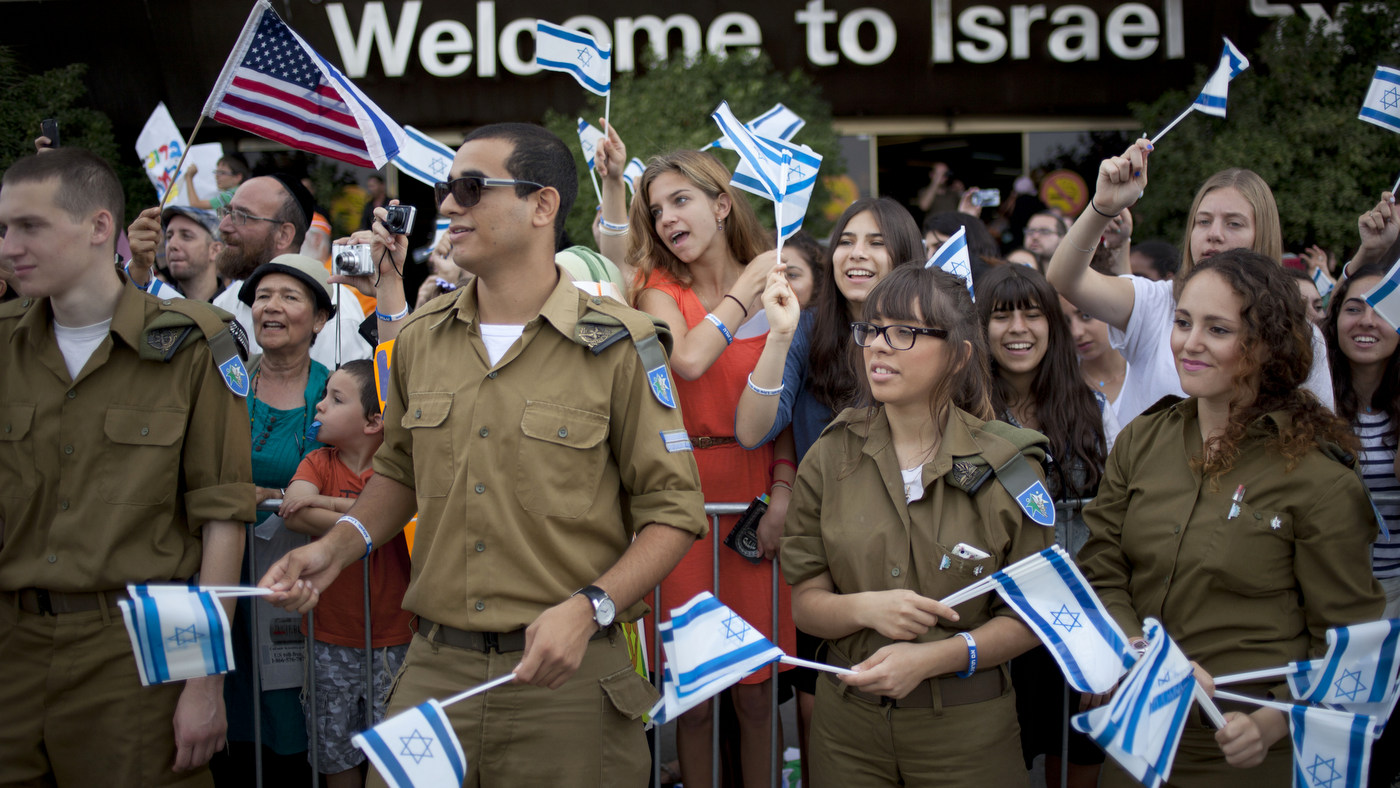
RAMALLAH — Dan Cohen didn’t always write about Israeli apartheid or the Palestinian struggle. The Jewish journalist was raised in a community of Zionist-filled ideologies in Arizona, and it wasn’t until just a few years ago that he decided to dedicate his life to challenging the media’s narrative by gathering the truth himself.
For the past three summers, Cohen has been based in Ramallah, where he types out his stories through the lens of his own Jewish identity and focuses his camera on moments symbolic of what it’s like to live under Israel’s occupation.
He tweeted a selfie with a group of Palestinian children earlier this year, with the caption: “Selfie with the greatest threat to Israel.” Within 24 hours, he told Mondoweiss at the time, it had been retweeted over 10,000 times.
Selfie with the greatest threat to Israel. pic.twitter.com/kJXtNrmdB1
— Dan Cohen (@dancohen3000) January 5, 2015
Life in Palestine has helped to open Cohen’s eyes to Israel’s inappropriate use of Judaism to justify the ethnic cleansing of Palestinians — something Cohen wants no part of.
Speaking to MintPress News over the phone, Cohen discussed the vandalism and the misuse of the Star of David — often used as a kind of national symbol in Israel — that he’s witnessed in various parts of Palestine: “It’s all over the place. Stars of David are etched into homes of Gaza and all over Palestine.”
Throughout history, the Star of David has represented the shield of David and was used in mosques and churches. Inspired by the wave of nationalism that was spreading across Europe as small statelets were established and declared their own independence, European Jews appropriated the Star of David from a religious symbol to an ethnic one that became an icon of the nationalist ideology of Zionism that would soon create a homeland for European Jews persecuted during the Holocaust.
While the Star of David features prominently in Israeli life today, putting this nationalist symbol on flags and war machines is a violation of the integrity of the religious symbol, according to many Jewish activists.
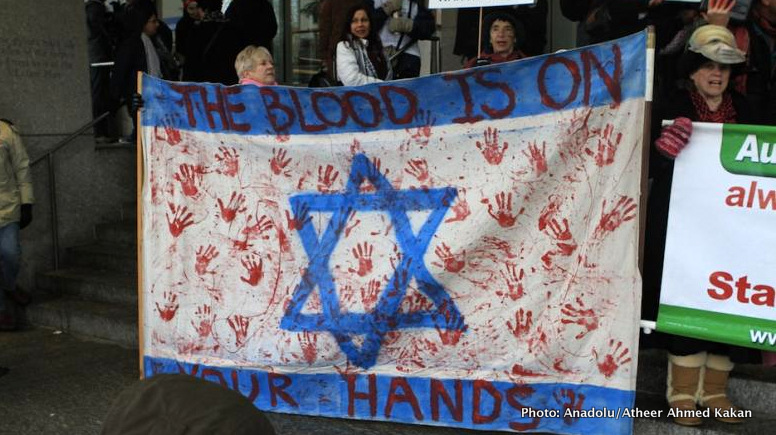
Moreover, this misuse encourages anti-Semitism, Cohen argued. “Zionists use the Star of David as a symbol of violence against the Palestinians,” he said. “Zionism is the number one cause of anti-Semitism.”
Cohen dedicated months to reporting on Israel’s bombardment of Gaza during last summer’s Operation Protective Edge and its aftermath. In the 50 days of Israeli offenses, he witnessed Gaza’s bloodbath first-hand and spoke with victims, including Saleem al Qasas, who is shown here counting family members of his who have been killed by Israeli drone strikes.
Operation Protective Edge resulted in the death of over 2,100 Palestinians including 519 children, according to figures from the United Nations. Overall, civilian deaths represented almost 70 percent of Palestinian fatalities. Whistleblowers from within the military even came out admitting that they were ordered to target children, schools and U.N. shelters in a report published by an Israeli group documenting troop accounts of war. The same accounts exposed a disturbing Israeli military policy of “indiscriminate fire” that killed Palestinians.
Israel: The birth of apartheid
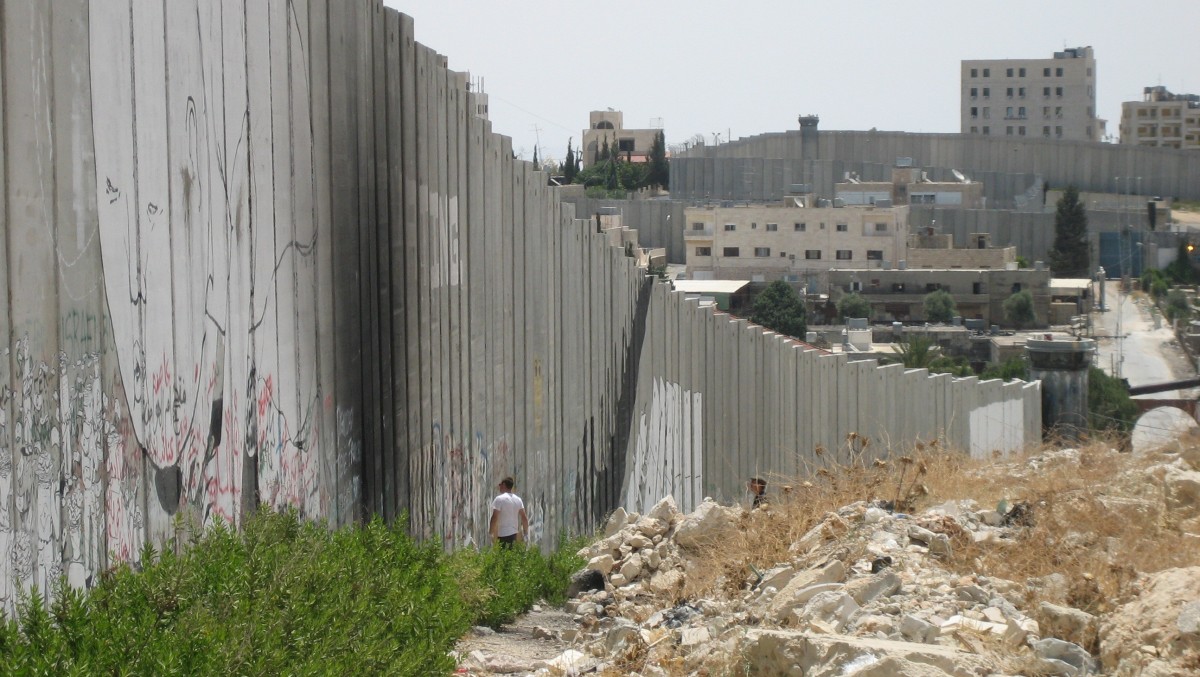
Dan Cohen also shared his experience with Jewish privilege in Israel as a visiting American Jew. He said, “When I go there, typically Israelis will ask me how long I’ve been there. And they’ll encourage me to join in the project.” “Project” is a term used by Zionist Jews that refers to the creation of a Greater Israel which would lie between the Tigris and Nile rivers and expand from where Israel lies today to Jordan, Lebanon, Syria and Egypt.

Encouraged to share the goal of discovering the meaning of their shared religious identity via Israel, some young Jews begin to participate in the Zionist movement and support the occupation of Palestine as a result of feeling connected to the state.
Yet Jewish activists and journalists like Cohen are joining forces to tackle the widespread misconception that all Jews support the Zionist state of Israel, which not only oppresses the Palestinians, but endangers Jews along the way.
Leading the charge to break these misconceptions are Jewish organizations which challenge Zionism, like Jewish Voice for Peace. Ilana Rossoff, Midwest Regional Organizer for JVP, told MintPress, “Judaism is a religion and Zionism is a movement. For a lot of people, they don’t have a connection to a Jewish institution or community, so they look at Israel as a Jewish community.”
Rossoff also said that while Israel takes the place of a Jewish community for many people, it is in turn perpetuating violent nationalism. “This is not the real practice of Judaism, this is just a political movement built on stolen land and depriving others of human rights. I can’t let this be done in my name. I have a right to be here and not agree with Israel,” she said.
In a 2010 interview with the Electronic Intifada, Gideon Levy, an Israeli columnist at Haaretz, explains Israel’s misguided policies and struggles inflicted on Palestinians living under Israeli occupation:
“Zionism has many meanings. For sure, the common concept of Zionism includes the occupation, includes the perception that Jews have more rights in Palestine than anyone else, that the Jewish people are the chosen people, that there can’t be equality between Jews and Arabs, Jews and Palestinians. All those beliefs which are very basic in current Zionism, I can’t share them. In this sense, I can define myself as an anti-Zionist.”
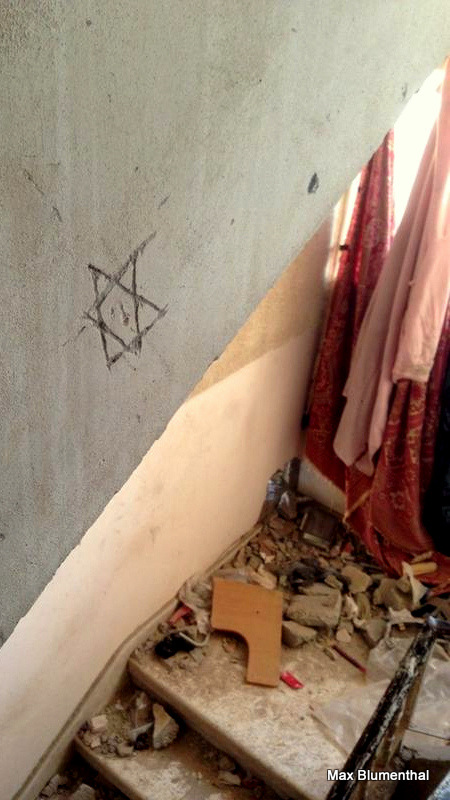
Israel uses laws and customs to discriminate against Palestinians. This is apparent in a number of ways, including the unequal justice system, education, housing, standards of living, and access to water and roads. The state maintains a racially discriminatory system via travel restrictions, curfews, denying children access to schools, and checkpoints. Through this extreme colonization, Palestinians are continuously denied fundamental rights and freedoms.
Indeed, the last 67 years have been marked by the displacement and ethnic cleansing of 90 percent of the native Palestinian population from the Holy Land. Palestinians make up the largest refugee population in the world with an estimated 6.5 million displaced since the creation of Israel.
Miko Peled, an Israeli activist, author and son of one of the original army generals of the state of Israel, writes: “In 1948 the Jewish militia became the Israeli army, but between the end of 1947 and the beginning of 1949 they destroyed close to 500 towns and villages and exiled close to 800,000 Palestinians who to this day are not permitted to return.”
“For the past 64 years ethnic cleansing of Palestine is what drives the Zionist policies towards Palestinians. All Zionist governments and all Zionist political parties left, right and center support the ethnic cleansing,” Peled explained in an entry on his website in December 2011.
Once a place where Muslims, Jews and Christians all lived under the same law of the land, the transformation of historic Palestine into a Jewish-only is marked by a system of apartheid and segregation that sought religious and ethnic privilege to Jewish people over the rights of Palestinian Muslims and Christians.
Preceding Israel’s declaration of independence is Nakba Day (Day of Catastrophe), a day on which an estimated 700,000 Palestinians fled to neighboring nations to seek refuge after armed Zionist militias bombarded Palestinian neighborhoods, killing thousands of people. As those militias gained traction and took control of various Palestinian cities, hundreds of homes were destroyed as a result of this new militarized occupation that was propped up by Great Britain and the United States.
‘Judaism isn’t Zionism’
Facing an identity crisis from within, many Jews are now beginning to question the ideology of Zionism — the same ideology that founded the Jewish state 67 years ago. This nationalist philosophy that created an apartheid state based on Jewish privilege, is central to questions on Israel’s right to exist at the cost of ethnically cleansing another population.
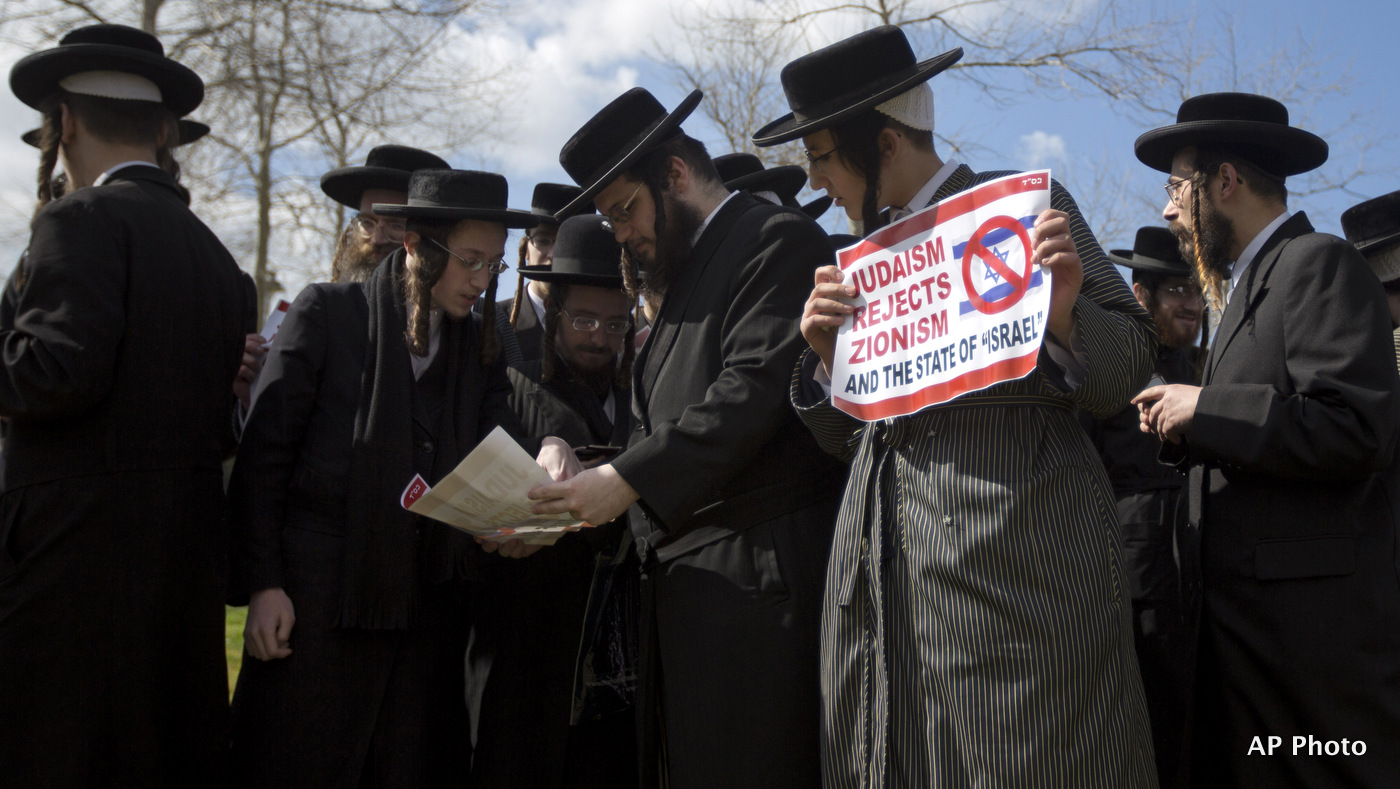
It wasn’t until Cohen grew up that he realized “Judaism isn’t Zionism and I don’t have to support the killing of Palestinians and displacing people in order to be a Jew.”
To combat Israeli apartheid as well as the Israeli occupation of historic Palestine, a Boycott, Divestment and Sanctions movement has been brewing. Initiated by Palestinian civil society in 2005 and supported by Nelson Mandela, the BDS movement is a non-violent human rights movement aimed at crippling the state of Israel by economic means to force it to comply with international law and respect the rights of Palestinians.
Millions of anti-apartheid activists around the world have called for companies, universities, and citizens to divest from Israel, stop buying Israeli-made products, and sanction Israel’s economy that is responsible for the ethnic cleansing of Palestinians as well as hijacking the Jewish faith. The nonviolent movement is certainly having an impact: It could cost the Israeli economy as much as $4.7 billion a year.

